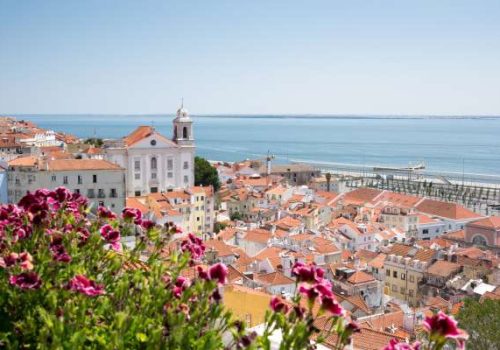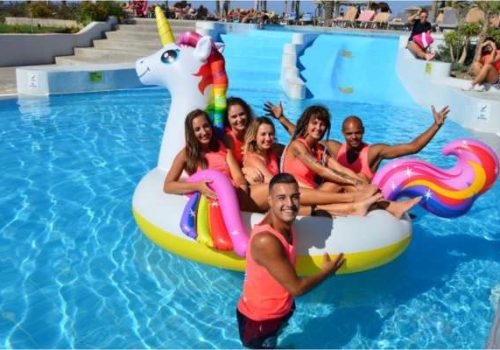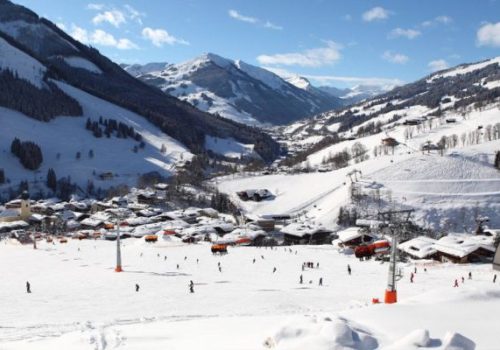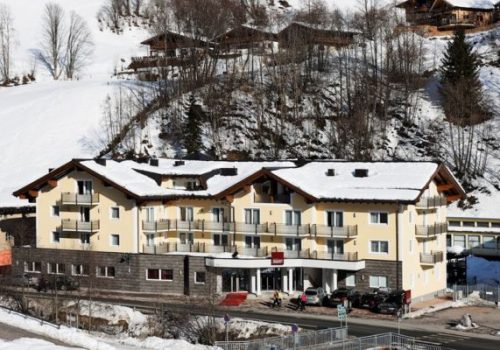Living and Working in Slovakia
Information & guidance about seasonal jobs in Slovakia
Slovakia, officially known as the Slovak Republic, is often referred to as the land of castles and mountains. Positioned in the heart of Europe, the country has witnessed a significant surge in its innovative spirit in recent years, attracting a growing number of international companies.
If you’re considering living and working abroad, Slovakia might be an appealing option with its captivating landscapes, rich history, and growing business opportunities. The country’s central location in Europe makes it a strategic hub for various industries and trade.
Embracing life in Slovakia provides the chance to explore its charming castles, picturesque mountains, and vibrant cities. The cost of living is generally more affordable compared to many Western European countries, allowing for a comfortable lifestyle while working or studying.
The country’s innovative atmosphere fosters numerous opportunities for professionals seeking to make their mark in emerging industries. As international companies continue to invest in Slovakia, there is a demand for skilled talent in various sectors.
Whether you’re drawn to the allure of history and nature or eager to be part of Slovakia’s growing innovative landscape, this country holds promising prospects for those seeking a new chapter of life and work abroad.
Seasonal jobs in Slovakia
We don’t have any jobs matching this search. Below you’ll find a selection of our most popular vacancies!
- Hotel jobs, Tourism
- Cyprus, Greece, Spain
- Adventure jobs, Hotel jobs, Tourism
- Bulgaria, Croatia, Egypt, Greece, Italy, Spain, Turkey
- Chef & Cookery
- Austria
- Ski & Winter Resort
- Austria
- Adventure jobs, Hotel jobs, Tourism
- Bulgaria, Croatia, Egypt, Greece, Italy, Spain, Turkey
Working in Slovakia
Working Conditions
After experiencing an economic downturn, Slovakia is now slowly recovering. The unemployment rate, as of 2022, stands at 6.06%, below the EU average. The labor force is primarily divided into three sectors: industry (33%), agriculture (9%), and services (59%). Unemployment rates are higher in the eastern part of the country compared to the western and northwestern regions.
Working hours in a company in Bratislava typically involve 40 hours per week or 8 hours per day. Overtime or part-time work opportunities may exist, but the specifics are discussed before signing the contract. Workers usually enjoy 4 weeks of vacation per year, with those aged 33 or older or with full-time responsibility for a child entitled to an additional week’s vacation.
Salary in Slovakia
The national minimum wage in Slovakia for 2022 is EUR 646 per month, and the average wage hovers around EUR 1000. Although average wages are slightly lower than in other European countries, lower prices for food, housing, and amenities help offset this difference.
Taxes in Slovakia
Employers typically handle taxes, health insurance, and social security contributions, deducting them from employees’ wages. To be considered a tax resident, you must live and work in the city for at least 183 days a year. Taxes are based on individual annual income and range from 19% to 25%.
Applying for a Job in Slovakia
The application process in Slovakia resembles that of Germany. Applications must be written in Slovak (or sometimes in English) and tailored to the specific position. Prior research on the company is recommended before applying. While online applications are common, you may not need to submit references or other attachments until after an interview.
In Slovakia, professional experience holds more significance than school reports and grades on the CV. Having an internship or part-time job during studies or school can be more beneficial than solely focusing on excellent grades.
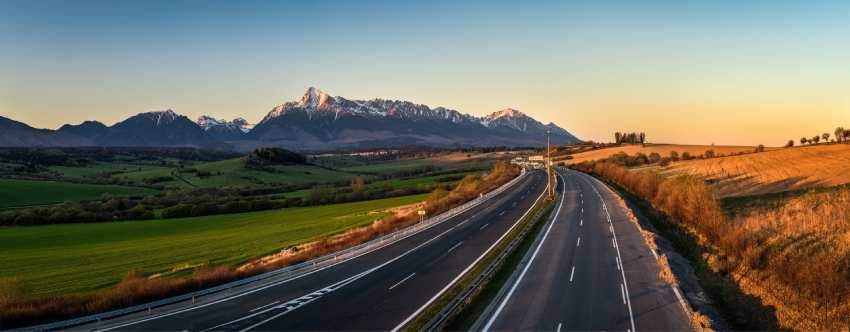
Living in Slovakia
Accommodation in Slovakia
When relocating to a new place, it can be beneficial to consider renting through platforms like Airbnb initially. This allows you ample time to explore the area and find a neighborhood that suits your preferences.
Rental prices in Slovakia, including the capital Bratislava, are generally lower than in Germany. For instance, one can typically find a one-room apartment for just under €250 and pay around €400 – €600 in Bratislava.
Transport in Slovakia
Slovakia boasts a well-developed bus network, with the Slovenská autobusová doprava (SAD) serving almost all towns and villages in the country. Additionally, private companies offer transport solutions on busier routes. Tickets are often purchased directly from the driver or, in larger cities, at the bus station or online. For long distances, a combination of train and bus travel is often a good option.
Major transport companies offer reduced tariffs for travelers under 26 years with an ID card (e.g., youth or student ID card like ISIC, EURO26), as well as for travelers over 60 or 70 years with an ID card or passport. Discounts may also be available for those who purchase tickets online. In larger cities like Bratislava and Košice, an extensive bus system connects the city center with the outskirts.
Food in Slovakia
Slovak cuisine features a variety of meat dishes, potatoes, dairy products, and sauerkraut. One of the country’s most famous dishes is Bryndzove halušky (Brimsen dumplings), comprising small dumplings made of potato dough mixed with feta cheese (bryndza) and served with fried bacon. It is often enjoyed with sour milk or buttermilk.
Slovak culinary culture is influenced by the cuisine of neighboring nations. For instance, goulash (guláš), originating from Hungarian cuisine, is widespread in Slovakia and is often enriched with mushrooms and cranberries.
Slovak home cooking commonly includes soups as a staple. Popular options include sauerkraut soup (Kapustnica), typically prepared with cabbage, smoked sausage, meat, and mushrooms, as well as cesnaková polievka, a garlic soup, and hubová polievka, a mushroom soup usually garnished with sour cream.
Various cheese specialties are also a hallmark of Slovak cuisine, with popular examples being Korbáčiky, a braided cheese served smoked or unsmoked, and Parenica and Oštiepok, two other beloved cheeses.
During the Christmas season, traditional pastries such as sourdough cakes and pastries filled with jelly, poppy seeds, or nuts are savored. The Štedrák cake, a layered cake filled with classic ingredients like plum jam, poppy seeds, crushed walnuts, and cheese, is a common holiday dessert.
Nightlife in Slovakia
For an exciting night out, Bratislava is the place to be. Whether you enjoy bar hopping, dancing at a nightclub, or opting for a VIP experience at a strip club, the Slovakian capital offers a vibrant nightlife scene where you can party until the early hours of the weekend sunrise.
Bratislava boasts numerous options for a fun-filled evening, from enjoying martinis at trendy spots to dancing at discos or attending live concerts. The city’s pubs are often clustered around Michalská, Ventúrska, Obchodná Street, SNP Square, and P.O. Hviezdoslav Square.
For those seeking a taste of the city’s underground scene, Fuga is a must-visit venue that has been a staple for over a decade. It caters to individuals looking for experiences beyond the mainstream offerings.
Bratislava embraces multiculturalism, evident in the vibrant atmosphere of Karpatská Street, attracting people from diverse backgrounds. Nedbalova Street in the city center, along with the former department store transformed into the Dunaj Cultural Center, hosts live concerts, readings, debates, theatrical performances, exhibitions, and lectures. This lively and exciting nightlife makes Bratislava a city that truly belongs to the youth.
Landscape and Nature in Slovakia
Slovakia boasts nine national parks with majestic mountain peaks, deep valleys, and mysterious gorges. Its vast forests are teeming with life and serve as the habitat for wolves, bears, lynxes, and chamois. The Carpathians offer breathtaking natural beauty.
The country is home to the largest karst area in Central Europe, featuring over 6,200 caves and chasms. Pristine ice-covered lakes, serene rivers in the lowlands, bird sanctuaries, and azure pools add to the enchanting scenery. Sand dunes, pine forests, natural travertines, and formations shaped by volcanic activity contribute to the incredible array of colors found within this compact region.
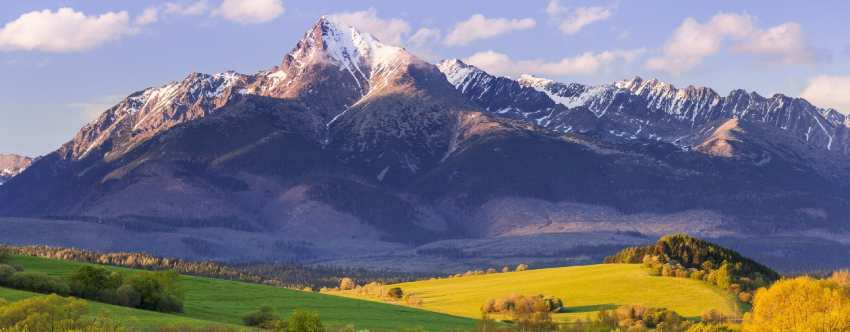
What you must not miss in Slovakia!
Slovakia offers a wealth of attractions for nature lovers, history enthusiasts, and foodies. From national parks and hiking trails to numerous caves under UNESCO protection, the country’s diverse landscapes never fail to impress.
Bratislava – Slovakia’s vibrant capital city, Bratislava, is the ideal starting point for exploring the country. The iconic Bratislava Castle, with its medieval towers, offers breathtaking views of the city. As you stroll through the city center and old town, you’ll be enchanted by the medieval architecture, and don’t miss spotting the famous bronze sculpture “Cumil” peering out from a manhole.
High Tatras – Located in the northeast, the High Tatras is Slovakia’s highest mountain range. A four-hour train journey from Bratislava takes you to Poprad, the gateway to the mountains. In summer, the High Tatras are perfect for hiking and enjoying the fresh mountain air, while winter attracts visitors to its ski areas, the Little Alps.
Dobsiná Ice Cave – One of Slovakia’s national jewels, the Dobsiná Ice Cave, is among the world’s most notable ice caves. Designated a World Heritage Site, it’s a remarkable attraction for visitors.
Spiš Castle – One of Central Europe’s largest fortifications, Spiš Castle in the north-east boasts traditional walls enclosing the castle and its hill. A guided tour or independent exploration offers a glimpse into medieval history and breathtaking views of the surrounding Slovak countryside.
Košice – The second-largest city in Slovakia, Košice, offers cultural richness and entertainment. As the European Capital of Culture 2013, it’s a haven for exploration, and you can easily embark on day trips to nearby attractions like the High Tatras or Spiš Castle.
Healthcare in Slovakia
Slovakia’s healthcare system offers a mix of public and private services. Public hospitals, outpatient centers, and medical institutions provide a wide range of treatments. Citizens are required to have health insurance, granting them access to free medical care. Non-governmental hospitals may have partial patient contributions, while private, for-profit institutions require patients to bear the full treatment costs.
Visa and Stay in Slovakia
EU citizens can easily enter Slovakia with their ID card or passport. Stays exceeding 90 days require registration within 10 days of arrival at the local Immigration Office. After registration, EU citizens can stay in Slovakia for up to one year and work without a permit.
Security in Slovakia
Slovakia is generally safe, but petty crime is not uncommon, especially in popular tourist areas like Bratislava. Instances of purse and car thefts are reported. Travelers are advised to remain vigilant, safeguard important documents, and avoid carrying valuable items such as jewelry or large amounts of money.

